
Overview
Forensic science is a field that applies scientific methods to analyze evidence and provide objective conclusions in legal investigations. It involves the systematic collection, examination, and interpretation of physical and biological evidence found at crime scenes. Forensic scientists use a range of scientific disciplines, including biology, chemistry, physics, and psychology, to analyze various types of evidence such as DNA, fingerprints, and ballistics. By employing rigorous scientific techniques and specialized equipment, forensic scientists aim to uncover the truth, identify perpetrators, and ensure the fair administration of justice. Their findings and expert testimonies play a crucial role in criminal proceedings, helping to establish guilt or innocence and assisting in the pursuit of truth and accountability. Ultimately, forensic science serves as a bridge between science and the law, providing critical support to the criminal justice system.
GAO Tek’s life science equipment have the following applications in forensic science:
- DNA Analysis: GAO Tek’s life science equipment, such as thermal cyclers, DNA sequencers, and polymerase chain reaction (PCR) machines, are used for DNA analysis. Our DNA profiling helps in identifying individuals, linking suspects to crime scenes, and establishing relationships between individuals involved in criminal cases.
- Forensic Toxicology: GAO’s life science equipment, such as gas chromatography-mass spectrometry (GC-MS) and liquid chromatography-mass spectrometry (LC-MS), is used in forensic toxicology. Our instruments help in the identification and quantification of drugs, poisons, and other substances in biological samples like blood, urine, and tissues.
- Forensic Serology: GAO’s life science equipment, including microscopes and immunological techniques, is used for forensic serology analysis. This involves the examination of body fluids, such as blood, semen, and saliva, to determine the presence of biological evidence and to establish links between suspects, victims, and crime scenes.
- Forensic Entomology: GAO Tek’s life science equipment like microscopes, insect collection tools, and environmental monitoring devices are used in forensic entomology. This field involves the study of insects and arthropods associated with decomposing bodies, which can provide valuable information about the time of death, location of death, and movement of the body.
- Forensic Anthropology: GAO’s life science equipment, such as osteometric boards, calipers, and X-ray machines, is used in forensic anthropology. Our tools aid in the analysis and identification of skeletal remains, helping to determine age, sex, stature, and possible causes of death.
- Forensic Botany: GAO’s life science equipment, including microscopes and plant DNA analysis tools, is used in forensic botany. We involve the analysis of plant material found at crime scenes, such as pollen, seeds, and plant fragments, to determine their origin, linking suspects or victims to specific locations.
- Forensic Odontology: GAO’s life science equipment like dental radiography systems and dental impression materials are used in forensic odontology. Dental evidence, such as bite marks and dental records, can be analyzed to identify suspects or victims and provide evidence in criminal investigations.
Complying with Government Regulations
GAO Tek’s life science equipment comply or help our customers comply with the U.S. government regulations such as:
- Federal Rules of Evidence (FRE): The FRE govern the admission and use of scientific evidence, including forensic evidence, in federal courts. They establish standards for the qualification of expert witnesses and the reliability of scientific methodologies used in forensic analysis.
- National Institute of Standards and Technology (NIST) Standards: NIST develops and maintains various standards and guidelines relevant to forensic science, including those related to life science equipment. These standards ensure the accuracy, reliability, and validity of forensic techniques and technologies.
- Federal Bureau of Investigation (FBI) Quality Assurance Standards: The FBI has established quality assurance standards for forensic laboratories, known as the FBI Quality Assurance Standards for Forensic DNA Testing Laboratories. These standards outline requirements for laboratory management, personnel qualifications, evidence handling, equipment maintenance, and validation procedures.
- Drug Enforcement Administration (DEA) Regulations: The DEA regulates the handling and storage of controlled substances, including those used in forensic analysis. Laboratories conducting forensic analysis of controlled substances must comply with DEA regulations regarding security, record-keeping, and disposal of controlled substances.
- Occupational Safety and Health Administration (OSHA) Regulations: OSHA sets safety and health standards in the workplace, which may apply to forensic laboratories. These regulations include guidelines for the safe handling and disposal of hazardous chemicals, biological materials, and equipment maintenance.
- Food and Drug Administration (FDA) Regulations: The FDA regulates medical devices, including certain types of life science equipment used in forensic science. If the equipment is considered a medical device, it may need to comply with FDA regulations, such as obtaining proper clearances or approvals.
- Environmental Protection Agency (EPA) Regulations: In cases where forensic analysis involves the use of hazardous chemicals, EPA regulations may come into play. These regulations address the storage, handling, and disposal of hazardous substances and waste materials.
GAO Tek’slife science equipment comply or help our clients comply with the Canadian regulations such as:
- Canadian Forensic Science and Identification Services (CFSIS): The CFSIS is part of the Royal Canadian Mounted Police (RCMP) and sets standards for forensic science in Canada. It provides guidelines and best practices for forensic analysis, including those related to the use and maintenance of life science equipment.
- Health Canada Regulations: Health Canada regulates medical devices, including certain types of life science equipment used in forensic science. The Medical Devices Regulations outline requirements for the safety, efficacy, and quality of medical devices, including their importation, distribution, and use in Canada.
- Controlled Drugs and Substances Act (CDSA): The CDSA is the primary legislation in Canada governing controlled substances. Forensic laboratories handling controlled substances must comply with regulations related to their storage, handling, record-keeping, and disposal.
- Canadian Standards Association (CSA) Standards: The CSA develops and publishes standards that may be applicable to forensic science, including those related to laboratory equipment and procedures. These standards ensure the accuracy, reliability, and quality of forensic analysis.
- Health and Safety Regulations: Occupational health and safety regulations apply to forensic laboratories in Canada. These regulations, which may vary by province or territory, address workplace safety, including the handling of hazardous substances, equipment maintenance, and personal protective equipment requirements.
- Privacy Laws: Forensic science laboratories must comply with Canadian privacy laws, such as the Personal Information Protection and Electronic Documents Act (PIPEDA) or similar provincial legislation. These laws regulate the collection, use, and disclosure of personal information, including forensic data.
- Transport Canada Regulations: If forensic laboratories transport hazardous materials, including certain chemicals or biological samples, they may need to comply with Transport Canada’s regulations regarding the safe transport of dangerous goods.
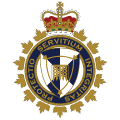 Canada Border Services Agency
Canada Border Services Agency
 Canadian Of Forensic
Canadian Of Forensic
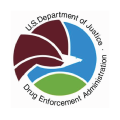 Drug Enforcement Administration
Drug Enforcement Administration
 Environmental Protection Agency
Environmental Protection Agency
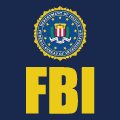 Federal Bureau of Investigation
Federal Bureau of Investigation
 Federal Rules of Evidence
Federal Rules of Evidence
 International Organization Standardization
International Organization Standardization
 NIST
NIST
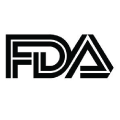
Food and Drug Administration
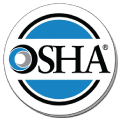 International Organization OSHA
International Organization OSHA
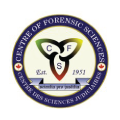 Ontario Centre of Forensic Sciences
Ontario Centre of Forensic Sciences
 Royal Canadian Society Mounted Police Science
Royal Canadian Society Mounted Police Science
Case Studies of Life Science Equipment in Forensic Science
Here are some practical examples of using life science equipment in forensic science:
DNA Sequencers in Crime Labs: DNA sequencers, such as those manufactured by companies like Thermo Fisher Scientific and Illumina, have been implemented in forensic laboratories across the USA and Canada. These sequencers allow forensic scientists to analyze DNA samples obtained from crime scenes, victims, or suspects, aiding in the identification and profiling of individuals involved in criminal investigations.
Mass Spectrometers for Drug Analysis: Mass spectrometry instruments, such as liquid chromatography-mass spectrometry (LC-MS) or gas chromatography-mass spectrometry (GC-MS) systems, have been used in forensic science laboratories for the analysis of drugs and controlled substances. These instruments assist in the identification and quantification of illicit substances, providing crucial evidence in drug-related criminal cases.
Microscopes for Trace Evidence Analysis: Advanced microscopy systems, including stereomicroscopes and compound microscopes, are extensively utilized in forensic science for the examination of trace evidence. These instruments allow forensic scientists to analyze minute samples such as fibers, hairs, glass fragments, and gunshot residue, aiding in crime scene reconstruction and the identification of potential sources or links.
Thermal Cyclers for DNA Profiling: Thermal cyclers, such as those manufactured by companies like Applied Biosystems (Thermo Fisher Scientific) and Bio-Rad, are critical equipment used in the polymerase chain reaction (PCR) technique for DNA profiling. Forensic laboratories rely on PCR-based methods like short tandem repeat (STR) analysis to generate DNA profiles from biological samples, assisting in the identification and differentiation of individuals involved in criminal investigations.
Automated Liquid Handling Systems: Automated liquid handling systems, like those provided by companies such as Beckman Coulter and Hamilton Robotics, have been implemented in forensic laboratories for sample preparation and high-throughput processing. These systems improve efficiency and accuracy in various forensic applications, including DNA extraction, sample dilution, and reagent dispensing.
The main page of the life science equipment has more information on GAO’s life science equipment and their applications in various industries:
Use of Life Science Equipment with Leading Software and Cloud Services in Forensic Sciences in Forensic Science
GAO Tek has used or has facilitated its customers to use GAO’s life science equipment with some of the leading software in their applications. Examples of such leading software include
- Chromas: Software for DNA sequence analysis, visualization, and editing. It is commonly used for forensic DNA analysis and DNA sequencing.
- ChemStation: Software platform by Agilent Technologies for instrument control and data analysis in chromatography applications, including gas chromatography (GC) and liquid chromatography (LC) used in forensic toxicology and drug analysis.
- Forensic Image Linking and Management (FILM): Software designed to organize, manage, and analyze digital images and multimedia evidence in forensic investigations.
- Forensic Toolkit (FTK): Comprehensive software for digital forensics that aids in data acquisition, analysis, and reporting from various digital devices and media, including computers, smartphones, and storage devices.
- Oxygen Forensic Detective: Software suite for mobile device forensics, enabling investigators to extract, analyze, and report data from mobile devices, including call records, messages, photos, and application data.
- DNAnexus: A cloud-based genomics platform that offers scalable infrastructure for analyzing and managing large-scale genomic datasets. It provides tools for DNA sequence alignment, variant calling, and annotation, suitable for forensic DNA analysis.
- Seven Bridges: A cloud-based biomedical data analysis platform that provides scalable computing resources and analysis tools for genomics, proteomics, and other life science disciplines. It offers pipelines and workflows for DNA sequencing data analysis in forensic science applications.
- IlluminaBaseSpace: A cloud-based platform specifically designed for analyzing genomic data generated by Illumina sequencing instruments. It offers a suite of analysis tools, including alignment, variant calling, and data visualization, suitable for forensic DNA analysis.
- Amazon Web Services (AWS): A comprehensive cloud computing platform that offers various services, including data storage (Amazon S3), compute power (Amazon EC2), and database hosting (Amazon RDS). It can be utilized for storing forensic science data, running analysis applications, and hosting web-based forensic science tools.
- Microsoft Azure: A cloud computing service that provides a wide range of services, including virtual machines, storage, and database hosting. Azure offers scalable storage options (Azure Blob Storage), virtual machines for hosting forensic science applications (Azure Virtual Machines), and database hosting (Azure SQL Database).
- Google Cloud Platform (GCP): A suite of cloud computing services that includes storage (Google Cloud Storage), computing (Google Compute Engine), and database hosting (Google Cloud SQL). GCP offers scalable and secure storage options and provides infrastructure for hosting forensic science applications.
- IBM Cloud: A cloud computing platform that offers infrastructure services, data storage, and application hosting capabilities. It provides scalable storage options (IBM Cloud Object Storage), virtual machines for application hosting (IBM Virtual Servers), and database hosting (IBM Db2 on Cloud).
GAO Tek Has Many Customers in Forensic Science
GAO Tek’s life science equipment have been used by many customers in forensic science, including some leading companies.
Here are some of the leading companies in forensic science:
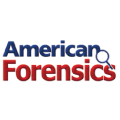 American Forensics
American Forensics
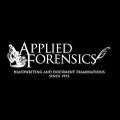 Applied Forensics
Applied Forensics
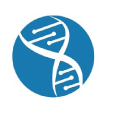 Bode Technology
Bode Technology
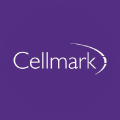 Cell Mark Forensic service
Cell Mark Forensic service
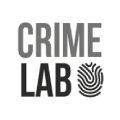 Crime Lab Design
Crime Lab Design
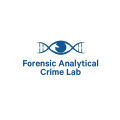
Forensic Analytical Crime Lab
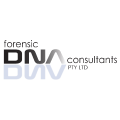 Forensic DNA consultants
Forensic DNA consultants
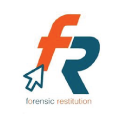 Forensic Restitution
Forensic Restitution
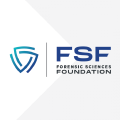 Forensic Science Foundation
Forensic Science Foundation
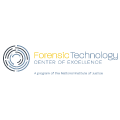 FTCoE
FTCoE
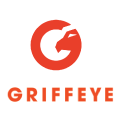 Griffeye
Griffeye
 LGC Forensic
LGC Forensic
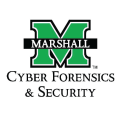 Marshall Forensic Science
Marshall Forensic Science
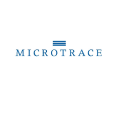 Microtrace LLC
Microtrace LLC
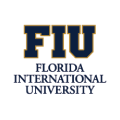 NFSTC
NFSTC
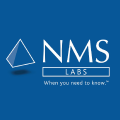 NMS Labs
NMS Labs
 Northwest Analytical
Northwest Analytical
 Precision Forensics Inc
Precision Forensics Inc
 RJ Lee
RJ Lee
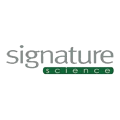 Signature Science
Signature Science
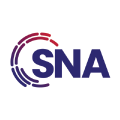 SNA International
SNA International
 Sorenson Forensics
Sorenson Forensics
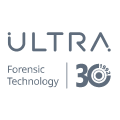 Ultra Forensic Technology
Ultra Forensic Technology
 Sirchie
Sirchie
More applications of GAO Tek’s life science equipment and applications are listed on this page:
